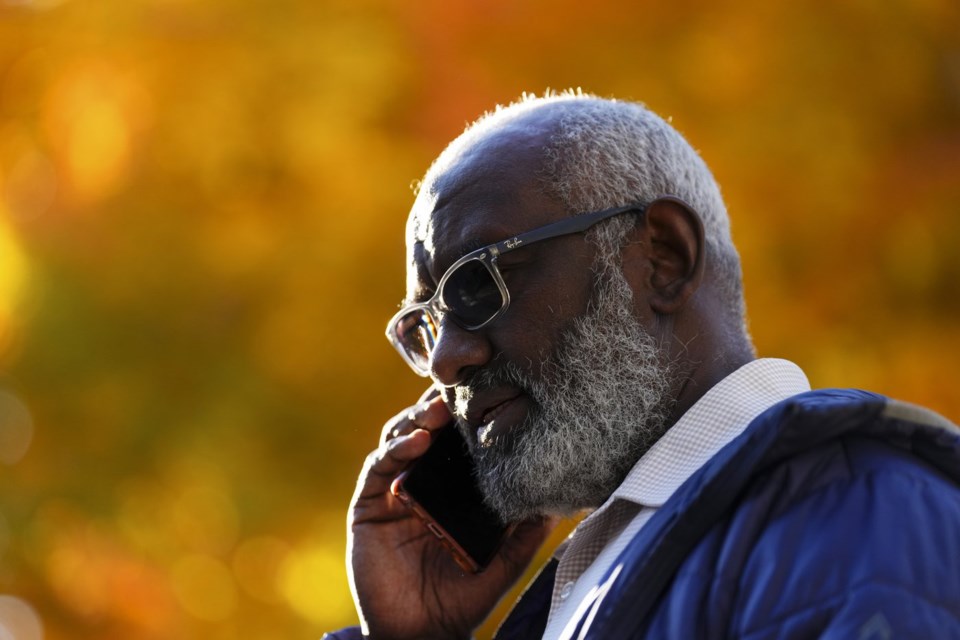OTTAWA ÔÇö A lawyer for Abousfian Abdelrazik has accused former foreign minister Lawrence Cannon of exiling the Montreal man by denying him a passport to return to sa╣·╝╩┤½├¢.
Cannon told a Federal Court hearing Wednesday he did not exile Abdelrazik, but refused him an emergency travel document in 2009 on national security grounds in the best interests of sa╣·╝╩┤½├¢.
Lawyer Paul Champ, representing Abdelrazik in his lawsuit against Ottawa, pressed Cannon about the stress that the decision would have caused his client, a Canadian who had been stranded in Sudan for years.
"So it was your view, Mr. Cannon, that an individual Minister of the Crown could effectively exile or banish a Canadian citizen from sa╣·╝╩┤½├¢," Champ said during cross-examination.
Cannon replied: "I didn't exile Mr. Abdelrazik."
The Sudanese-born Abdelrazik, now 62, settled in Montreal as a refugee and became a Canadian citizen in the 1990s.
During a 2003 visit to his native country to see his ailing mother, he was arrested, imprisoned and questioned about suspected extremist connections.
Abdelrazik, who denies involvement in terrorism, says he was tortured by Sudanese authorities during two periods of detention.
He is suing the Canadian government, claiming officials arranged for his arbitrary imprisonment, encouraged his detention by Sudanese authorities and obstructed his repatriation to sa╣·╝╩┤½├¢ for several years.
The suit also names Cannon, the Conservative foreign affairs minister from October 2008 to May 2011.
Federal lawyers say sa╣·╝╩┤½├¢ did not urge Sudan to keep Abdelrazik in detention or mistreat him, or create a risk that these things might happen.
Abdelrazik's presence on security lists complicated his efforts to fly home to sa╣·╝╩┤½├¢, even once freed from Sudanese custody.
In April 2008, fearful of being arrested again, he sought safe haven at the Canadian Embassy in Khartoum and lived in makeshift accommodations for more than a year.
Canadian officials stated on several occasions the federal government would issue him an emergency passport if he was able to arrange air passage to sa╣·╝╩┤½├¢.
In March 2009, Abdelrazik obtained a ticket to sa╣·╝╩┤½├¢ for the following month.
In early April 2009, Cannon refused Abdelrazik an emergency travel document under a section of the Canadian Passport Order that said he could deny or revoke a passport if "such action is necessary for the national security of sa╣·╝╩┤½├¢ or another country."
During the cross-examination Wednesday, Champ put to Cannon that "by denying (Abdelrazik's) right to return to sa╣·╝╩┤½├¢, isn't that effectively exiling him?"
"I denied a passport," Cannon responded.
"In my view, it was more important to the safety and security of sa╣·╝╩┤½├¢ that I render that decision."
Cannon said he took the decision after reflecting on the circumstances, including information from department officials and the Canadian Security Intelligence Service.
CSIS, which considered Abdelrazik a security threat, sent officers to Sudan to interrogate him in October 2003 about his association in Montreal with people linked to terrorist activity.
However, the CSIS official who briefed Cannon in early 2009 to help inform his passport decision has told the court the spy service did not have new or significant intelligence at that time to determine if Abdelrazik remained a threat to national security.
Champ questioned Cannon about the limits of his authority under the Passport Order and whether the Charter of Rights and Freedoms posed a boundary to his decision-making.
Cannon indicated he had been advised that the Charter did not limit his authority.
This report by The Canadian Press was first published Dec. 11, 2024.
Jim Bronskill, The Canadian Press



